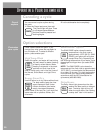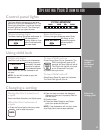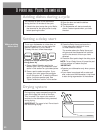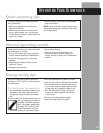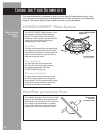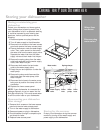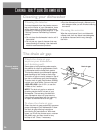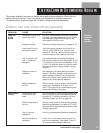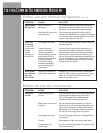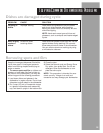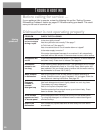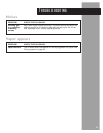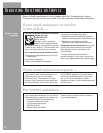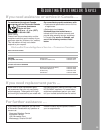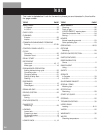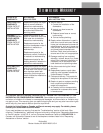
28
Solving Common Dishwashing Problems
PROBLEM
Spotting and
filming (cont.)
Silica film
or etching
(silica film is
a white milky
looking
deposit;
etching is a
cloudy film)
White spots
on cookware
with non-
stick finish
CAUSE
Use of ineffective
detergents
Insufficient fill due to low
water pressure
Rinse agent not used
A water chemical
reaction with certain
types of glassware –
usually caused by some
combination of soft or
softened water, alkaline
washing solutions,
insufficient rinsing,
excessive detergent,
and overloading the
dishwasher.
Seasoning removed by
dishwasher detergents
SOLUTION
For effective cleaning, use fresh dishwasher
detergent and store it tightly closed in a cool,
dry place. Throw away any lumpy detergent.
Your home water pressure should be 20 to
120 psi (138 to 828 kPa) for a proper dishwasher
fill. You may need a booster pump on the water
supply if the pressure is too low.
Fill the rinse agent dispenser. See the instruc-
tions on page 18.
You may have to hand wash these items to
eliminate this problem completely. Silica film
and etching are permanent marks and cannot
be removed. To slow down the reaction, you
can try using as little detergent as possible and
a liquid rinse agent. Also, underload the dish-
washer to allow thorough rinsing, and use the
Energy Saver Dry option.
Reseason your cookware after a dishwasher
washing. See cookware manufacturer’s instruc-
tions, or coat pan with cooking oil and wipe
clean with a paper towel.
Dishes do not dry completely
CAUSE
Water temperature is
too low
Water does not drain off
of dishes
Rinse agent not used
Plastics
Energy Saver Dry
option used
PROBLEM
Dishes are
not dry
SOLUTION
Set your water heater to ensure that the water
entering the dishwasher is at least 120°F
(49°C). See page 23 for recommended
procedure under “Energy saving tips.”
Do not overload the dishwasher so that the
water can drain off the dishes adequately, and
use a liquid rinse agent to help speed drying.
See pages 8-13 for proper loading instructions.
Do not use the Energy Saver Dry option.
Fill the rinse agent dispenser. See page 18 for
instructions.
Some plastics might need to be towel dried.
Do not use the Energy Saver Dry option on the
next load of dishes.
Dishes are not cleaned completely (cont.)



